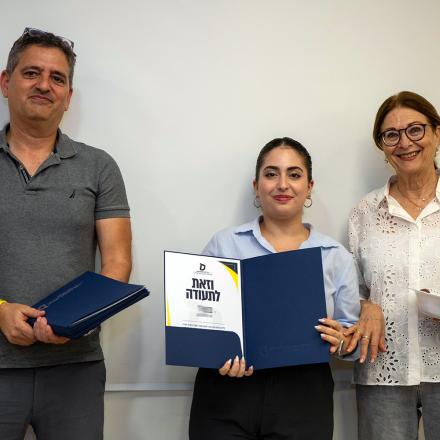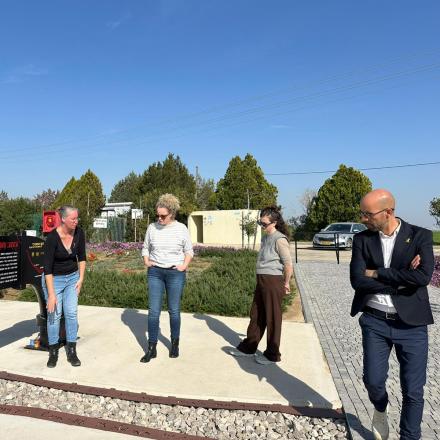Prof. Nir Kedar, President of Sapir College, recently joined representatives of Bank Hapoalim to award the bank’s prestigious Working for Success scholarship to 45 promising students. In addition to the scholarship, it offers in depth career preparation skills and leadership development training.
The program seeks to empower students from Israel’s socio-economic periphery, helping them achieve social mobility and motivating them to promote social change. Awardees are expected to give back to the community by volunteering 160 hours of service.
For Nurit Cohen, director of Bank Hapoalim in the nearby city of Sderot, the ceremony had deep, personal significance. A graduate of Sapir herself, Cohen now heads a key financial institution promoting economic growth in this Western Negev community. The program, she said, exemplifies the bank’s commitment to corporate social responsibility. Kedar praised the scholarship program as an outstanding partnership between business and academia to foster the next generation of Israeli leaders.
More News

Law and the Holocaust

